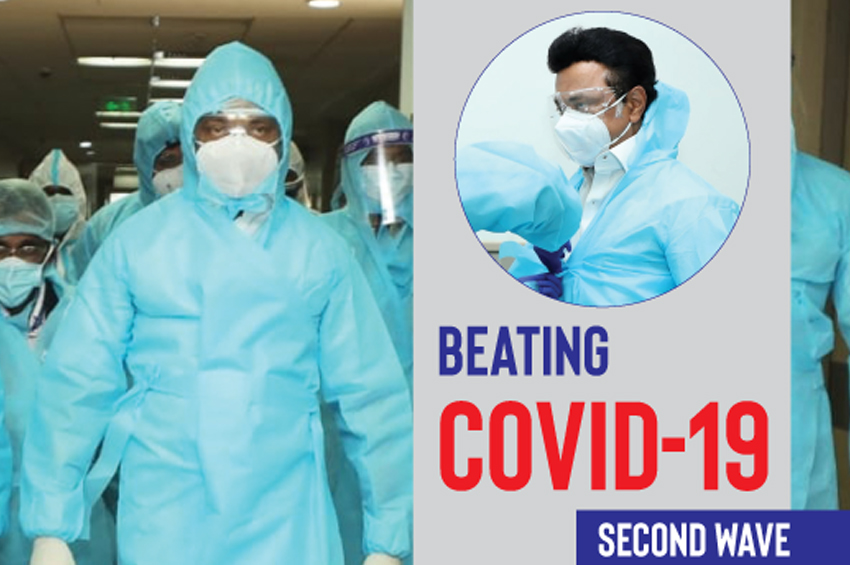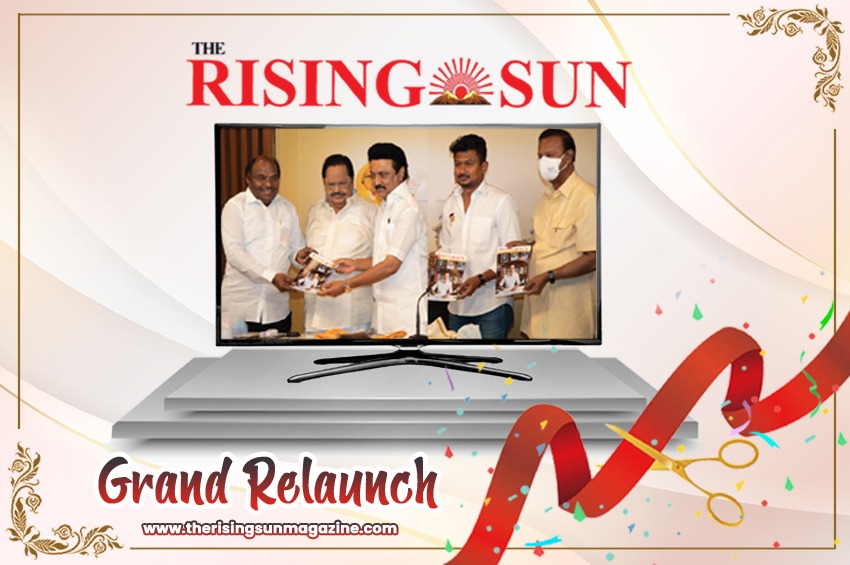When Muthuvel Karunanidhi Stalin was sworn in as Chief Minister of Tamil Nadu on May 7, the State was already under the siege of the second wave of the Covid-19 pandemic. The State was clocking more than 26,000 fresh cases and close to 500 deaths a day and the Chief Minister could not afford to rest on the laurels in the Assembly elections.
Even before assuming office, Mr Stalin had burnt midnight oil, held a series of meetings with Health experts and officials and rolled out a series of action plans to contain the spread of the Covid-19 as the devastating second wave became more aggressive coupled with shortage of medical oxygen.
Unlike the first wave of the pandemic, the second wave, triggered by the Delta variant of the Covid-19 virus, turned out to be more disastrous. Medical oxygen became the single most important intervention for moderate and severe cases of COVID-19 followed by Remdesivir, the antiviral drug.
Unlike the first wave of the pandemic, the second wave, triggered by the Delta variant of the Covid-19 virus, turned out to be more disastrous. Medical oxygen became the single most important intervention for moderate and severe cases of COVID-19 followed by Remdesivir, the antiviral drug.
After declaring that Tamil Nadu is facing a ‘Medical Emergency’, the Chief Minister had ordered the setting up of a ‘War Room’, a central unit to monitor the requirement of oxygen, vaccine and hospital beds on the one hand and constituted Chief Minister’s Public Relief Fund to raise funds and ramp up medical infrastructure on the other.
With the spirited support from his Ministerial colleagues, especially, Health Minister Ma Subramanian and Industries Minister Thangam Thennarasu, the Chief Minister eased the state from the clutches of the second wave after initiating measures on a war footing. The Government roped in the private hospitals to fully commit to save the lives of the people, while all the government hospitals rallied around to treat and save the patients.
“This is a difficult situation but this is not something we can not overcome,” the Chief Minister said encouraging Doctors, Technicians and Para-Medical Staff to be on their toes. And the Government’s strenuous efforts soon started paying dividends.
The government managed to stabilise the Oxygen requirements and streamlined the sale and availability of Remdesivir, the most sought-after drug for Covid treatment after making additional procurements. While ramping up the medical infrastructure, the government continued with the lockdowns with strict restrictions to contain the spread of the virus.
The State government’s efforts to contain the spread during the second wave earned the praise of the Supreme Court as the Apex court had said “Tamil Nadu has one of the better health infrastructure systems in the country and it came to light during the second wave of the COVID-19 pandemic.”
The credit clearly went to Mr Stalin. While containing the spread of the Covid-19, the Chief Minister encouraged people to take the Covid-19 vaccine. In a bid to allay the apprehensions, he took two doses of the vaccine and made vaccination a people’s movement.
Till May 7, 2021, a total of 62,36,742 people were vaccinated and after the assumption of the new government, more than Two crore people were vaccinated in the state up to July 27 and set to achieve the target of inoculating Three crore people by the August end, provided the Centre supplied the required quantity of the vaccines to the state.
Pointing that there was an imbalance in the allocation of vaccines to the state, Mr Stalin wrote to Prime Minister Narendra Modi and met him personally in Delhi and requested more vaccines to the state to meet the huge demand. Every day, about three lakh people were inoculated with Covid-19 vaccines in the state, he briefed the PM.
“We came at a time when there were no adequate hospital beds and medical Oxygen but we changed the situation dramatically,” Mr Stalin said while replying to the debate on the motion of thanks to the Governor’s address in the Assembly. In the last three months, the government has created 79,023 additional beds in government hospitals, he said.
Setting aside political differences, the Chief Minister had constituted an all-party committee, comprising representatives of legislature parties and listened to their suggestions to contain the spread. The AIADMK was represented by former Health Minister C Vijayabaskar. “The State is yet to be freed from the second wave but the Government deserves kudos for restoring normal life after containing the spread enormously,” a cross section of the people felt.
As the pandemic badly hit the livelihood of the poor and the downtrodden, the Chief Minister, fulfilling his election promise, distributed Covid relief of Rs 4,000 in two instalments to the ration card holders who are entitled to draw rice from Fair Price shops. The government had distributed a total of Rs 8,393 crores benefitting 2.11 crore families.
The Chief Minister had also announced a rehabilitation scheme for children orphaned during the Covid pandemic. Children who have lost both parents to COVID-19 will be provided with financial assistance of Rs 5 lakh as fixed deposit, and the amount will be provided to them with interest when they turn 18 years of age, he had announced. The Government’s decision to include Covid-19 in the Chief Minister’s Comprehensive Medical Insurance Scheme has so far benefitted thousands of people in the last three months.
Recognising the services of police personnel, who stood in the forefront in the fight against Covid-19 pandemic, Mr Stalin had announced Covid relief of Rs 5,000 to more than 1.17 lakh police personnel in the state.
As the threat of an outbreak of third wave loomed large, the government has stocked up Oxygen and ramped up the infrastructure well in advance and has already constituted a 12-member expert panel, headed by Principal Health Secretary J Radhakrishnan to protect children from the possible third wave.




